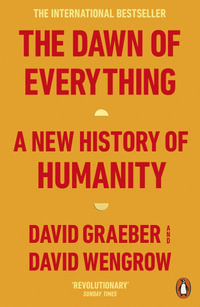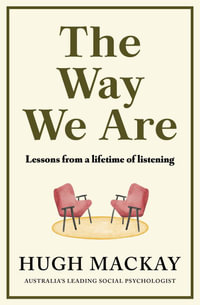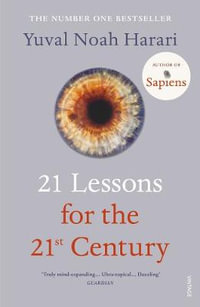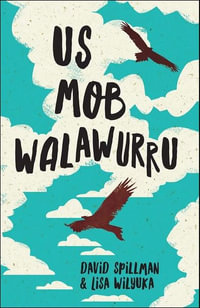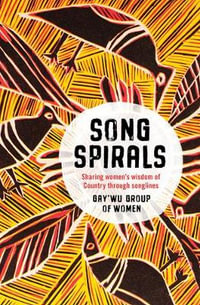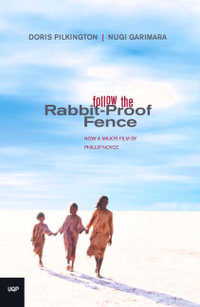The Empty Seashell explores what it is like to live in a world where cannibal witches are undeniably real, yet too ephemeral and contradictory to be an object of belief. In a book based on more than three years of fieldwork between 1991 and 2011, Nils Bubandt argues that cannibal witches for people in the coastal, and predominantly Christian, community of Buli in the Indonesian province of North Maluku are both corporeally real and fundamentally unknowable. Witches (known as gua in the Buli language or as suanggi in regional Malay) appear to be ordinary humans but sometimes, especially at night, they take other forms and attack people in order to kill them and eat their livers. They are seemingly everywhere and nowhere at the same time. The reality of gua, therefore, can never be pinned down. The title of the book comes from the empty nautilus shells that regularly drift ashore around Buli village. Convention has it that if you find a live nautilus, you are a gua. Like the empty shells, witchcraft always seems to recede from experience.
Bubandt begins the book by recounting his own confusion and frustration in coming to terms with the contradictory and inaccessible nature of witchcraft realities in Buli. A detailed ethnography of the encompassing inaccessibility of Buli witchcraft leads him to the conclusion that much of the anthropological literature, which views witchcraft as a system of beliefs with genuine explanatory power, is off the mark. Witchcraft for the Buli people doesn't explain anything. In fact, it does the opposite: it confuses, obfuscates, and frustrates. Drawing upon Jacques Derrida's concept of aporia-an interminable experience that remains continuously in doubt-Bubandt suggests the need to take seriously people's experiential and epistemological doubts about witchcraft, and outlines, by extension, a novel way of thinking about witchcraft and its relation to modernity.
Industry Reviews
"Bubandt likens the witch-menace to nuclear war orterrorism: 'a threat that isboth real and yet often absentsitself from daily experience.'Witchcraft is, therefore, aparadox: it's everywhere andnowhere, real and impossible,hauntingly vivid yet intangibleand invisible...Bubandt describes acharacteristic of the human mindthat is universal yet not alwaysobvious to those proud of theirpost-Enlightenment heritage.Our brains are simultaneously full of knowing and not knowing,believing and doubting, fearingand rationally dismissing fears.We know these to be incompatibleopposites, but can't help havingthem both in play at any one time.And so we comfort ourselves withthe illusion of singularity, and ofsecular triumph.One thing we know for sure isthat we have to appear to knowthings, when really we may knownothing at all."-Malcolm Gaskill,Fortean Times(April 2015) "In thisintriguing study of witchcraft in a Bulicommunity in Indonesia, [Bunandt] sets out to explore the complex nature of witchcraft in that community as something that exists but is unseen...Overall,this well-written and welcome book adds to the understanding of witchcraft in anthropology, especially in regard to doubt and modernity."-A. E. Leykam,CHOICE(July 2015) "The Empty Seashell is a beautiful and inspiring book. Nils Bubandt's analytical starting point-understanding witchcraft through Derrida's notion of aporia-is thoroughly innovative, not only for witchcraft studies but also for more general issues that have haunted anthropology: understanding 'belief,' surpassing simplistic oppositions between West and non-West, or making sense of human sociality. Bubandt characterizes gua (witchcraft) among the Buli as 'a vortex' which sucks up any tentative certainty that people try to attain. As a piercing form of existential doubt, gua inspires the author to audacious forays into philosophy which, however, always remain related in telling ways to vivid examples from daily life among the Buli. This combination-and Bubandt's engaging style-make the book a true adventure to read and a challenge to studies of witchcraft and human sociality in general."-Peter Geschiere, University of Amsterdam, author of Witchcraft, Intimacy, and Trust: Africa in Comparison "Nils Bubandt has a big idea: 'belief' is a modern product, and we should stop ascribing it to modernity's Others. Instead, we might appreciate doubt-as, for example, Bubandt learned it, mixed with terror, at the heart of Buli witchcraft. For Buli, modernity attracts because it brings belief, which might quell witchcraft's ambiguities. Anthropological certainties are set on their heads. The Empty Seashell is a tour de force." -Anna Tsing, University of California, Santa Cruz, author of The Mushroom at the End of the World: On the Possibility of Life in Capitalist Ruins






